“Rafah is the last bastion of Hamas control and there remain battalions in Rafah which Israel must dismantle to achieve its goals in this war,” he added.
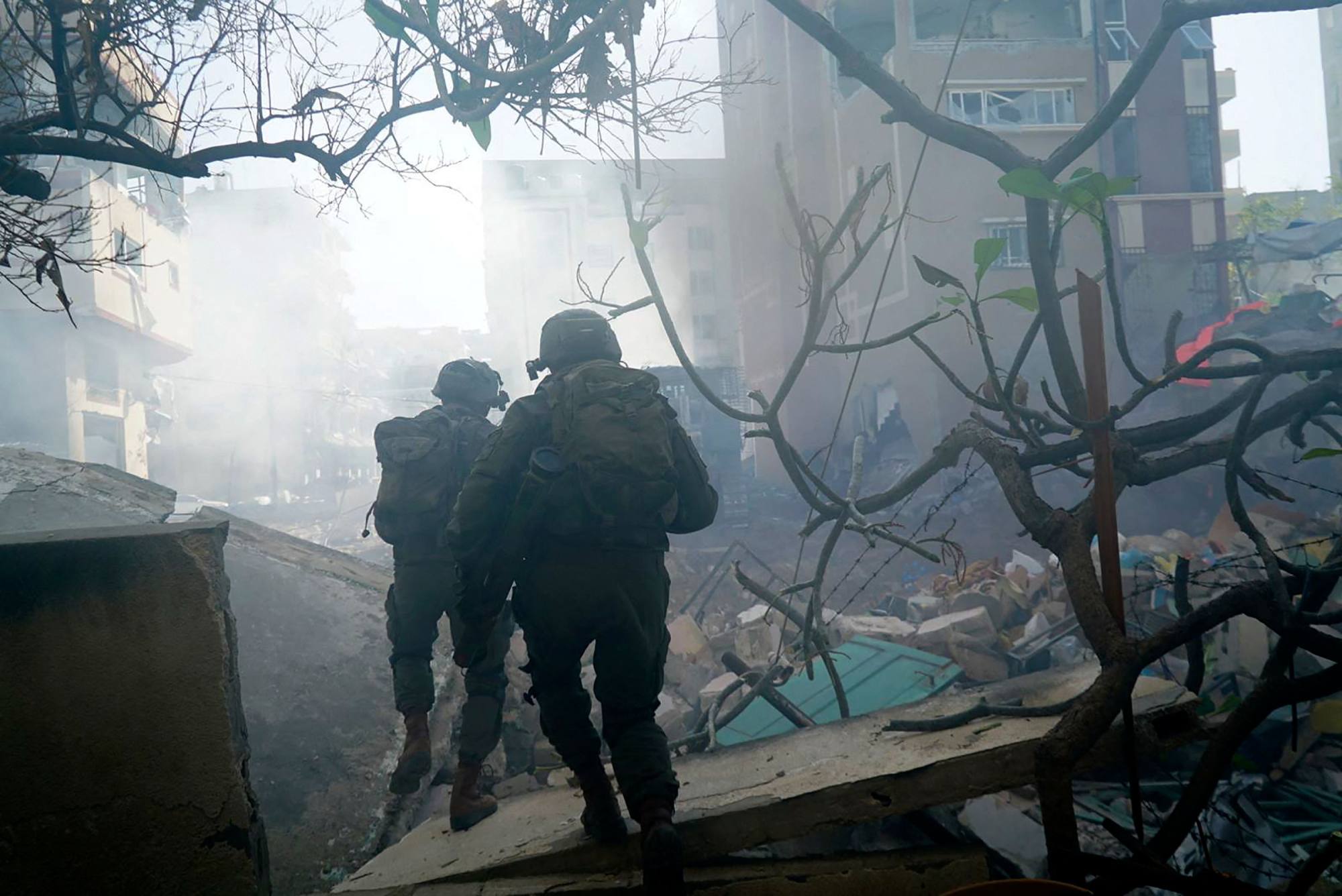
Defence Minister Yoav Gallant said on Friday that Israel Defence Forces (IDF) were planning operations in Rafah targeting Hamas fighters, command centres and tunnels, though gave no timeline for the campaign. He stressed that “extraordinary measures” were being taken to avoid civilian casualties.
“There were 24 regional battalions in Gaza – we have dismantled 18 of them,” he told a media briefing. “Now, Rafah is the next Hamas centre of gravity.”
Israel incensed after Brazil’s Lula likens Gaza war to Holocaust
Israel incensed after Brazil’s Lula likens Gaza war to Holocaust
On Sunday, a member of the Israeli war cabinet said Israel would invade Rafah by the start of Ramadan if Hamas does not return the remaining hostages by then.
“The world must know, and Hamas leaders must know – if by Ramadan our hostages are not home, the fighting will continue everywhere, including the Rafah area,” Benny Gantz, a retired military chief of staff, told a conference of American Jewish leaders in Jerusalem on Sunday.
“Hamas has a choice. They can surrender, release the hostages and the civilians of Gaza can celebrate the feast of Ramadan,” added Gantz, a member of the three-person war cabinet.
Ramadan, the Muslim holy month, is expected to begin around March 10.
Gantz said the offensive will be carried out in coordination with American and Egyptian partners to “minimise the civilian casualties as much as possible”.
World leaders fear a humanitarian catastrophe.
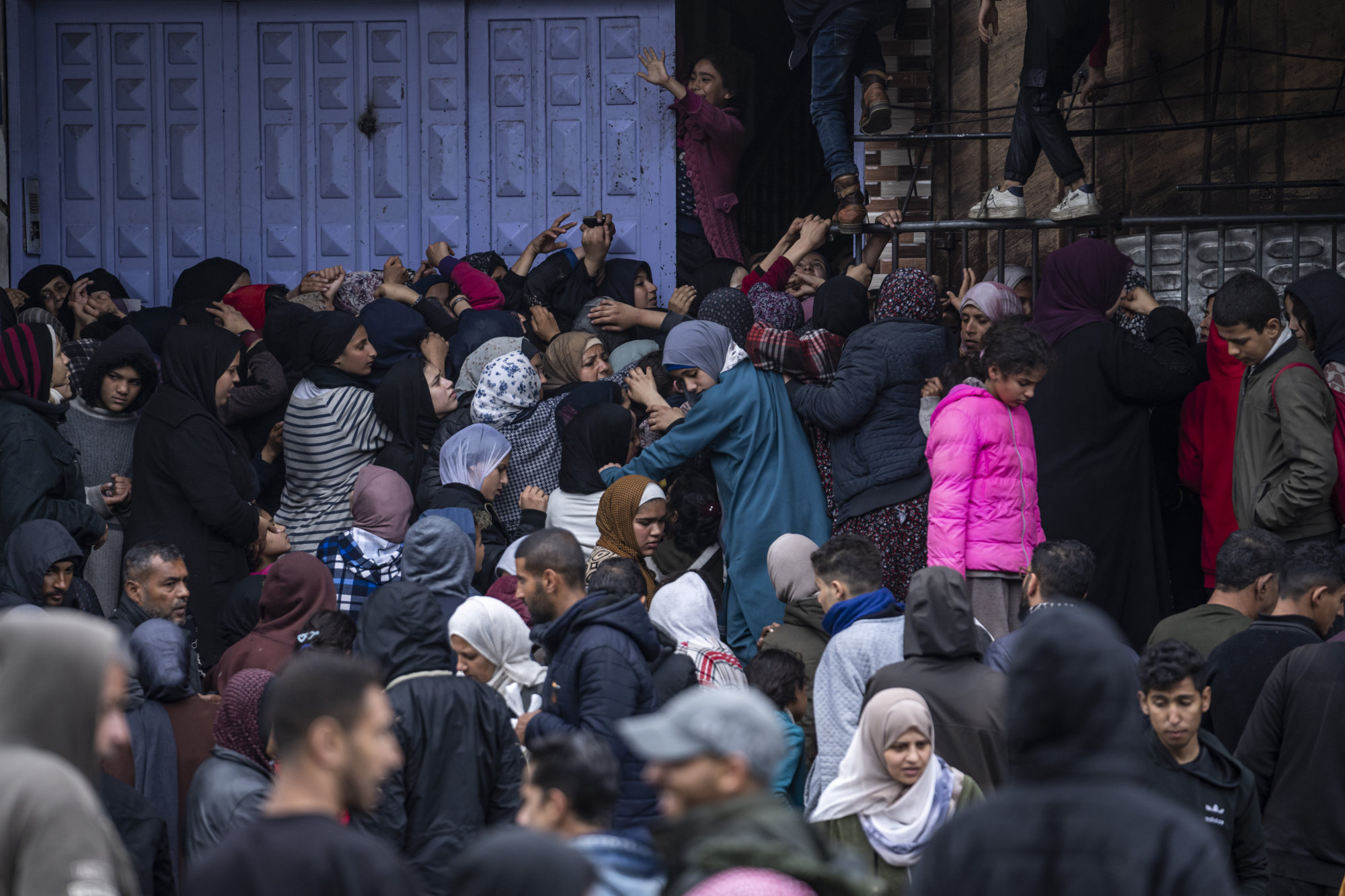
Trapped between the two sworn enemies are more than a million Palestinian civilians crammed into the city on the Egyptian border, with nowhere left to run, after fleeing Israeli attacks that have laid waste to much of the enclave.
In a past week of high diplomatic tension, US President Joe Biden phoned the Israeli leader twice to warn him against launching a military operation in Rafah without a credible plan to ensure the safety of civilians. Netanyahu himself said civilians would be allowed to leave the battle zone before the offensive, even as he vowed “complete victory”.
The IDF hasn’t explained how it will move more than a million people within the ruins of the enclave.
Israeli strikes kill at least 18 in Gaza, Netanyahu insists on Rafah offensive
Israeli strikes kill at least 18 in Gaza, Netanyahu insists on Rafah offensive
According to one Israeli security source and an international aid official, who asked not to be identified, Gazans could be screened to weed out any Hamas fighters before being sent northwards. A separate Israeli source said Israel could also build a floating jetty north of Rafah to enable international aid and hospital ships to arrive by sea.
Nonetheless, an Israeli defence official said Palestinians wouldn’t be allowed to return to north Gaza en masse, leaving scrubland around Rafah as an option for makeshift tent cities.
The regional officials also said it wouldn’t be safe to move a large number of people into a northern zone with no power and running water which hasn’t been cleared of unexploded ordinance.
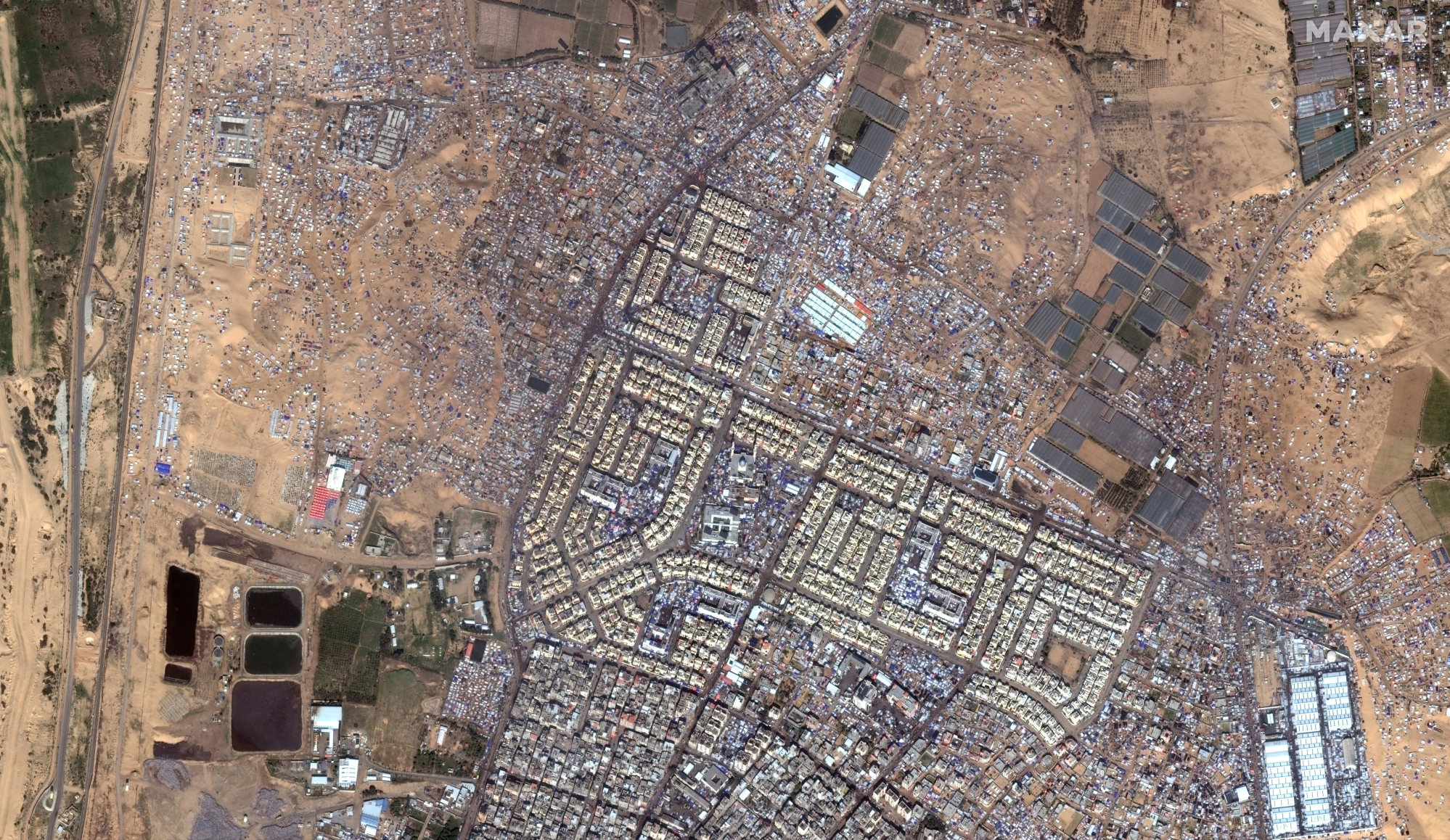
Washington is sceptical Israel has made sufficient preparations for a secure civilian evacuation, several officials familiar with the conversations between the two governments said. Biden said on Friday he didn’t expect a “massive” Israeli ground invasion to happen soon.
Furthermore, according to Hamas, the total victory promised by Netanyahu won’t be quick or easy.
A Hamas official based in Qatar told Reuters that the group estimated it had lost 6,000 fighters during the four-month-old conflict, half the 12,000 Israel says it has killed.
Hamas says Israeli hostages in Gaza have suffered many losses
Hamas says Israeli hostages in Gaza have suffered many losses
Gaza’s ruling group can keep fighting and is prepared for a long war in Rafah and Gaza, said the official, who requested anonymity.
“Netanyahu’s options are difficult and ours are too. He can occupy Gaza but Hamas is still standing and fighting. He hasn’t achieved his goals to kill the Hamas leadership or annihilate Hamas,” he added.
Hamas triggered the conflict on October 7 last year when its fighters burst out of the Gaza Strip into southern Israel, killing 1,200 people and seizing 253 hostages. The surprise attack prompted a massive retaliatory Israeli bombardment and ground invasion that have killed more than 28,000 Palestinians.
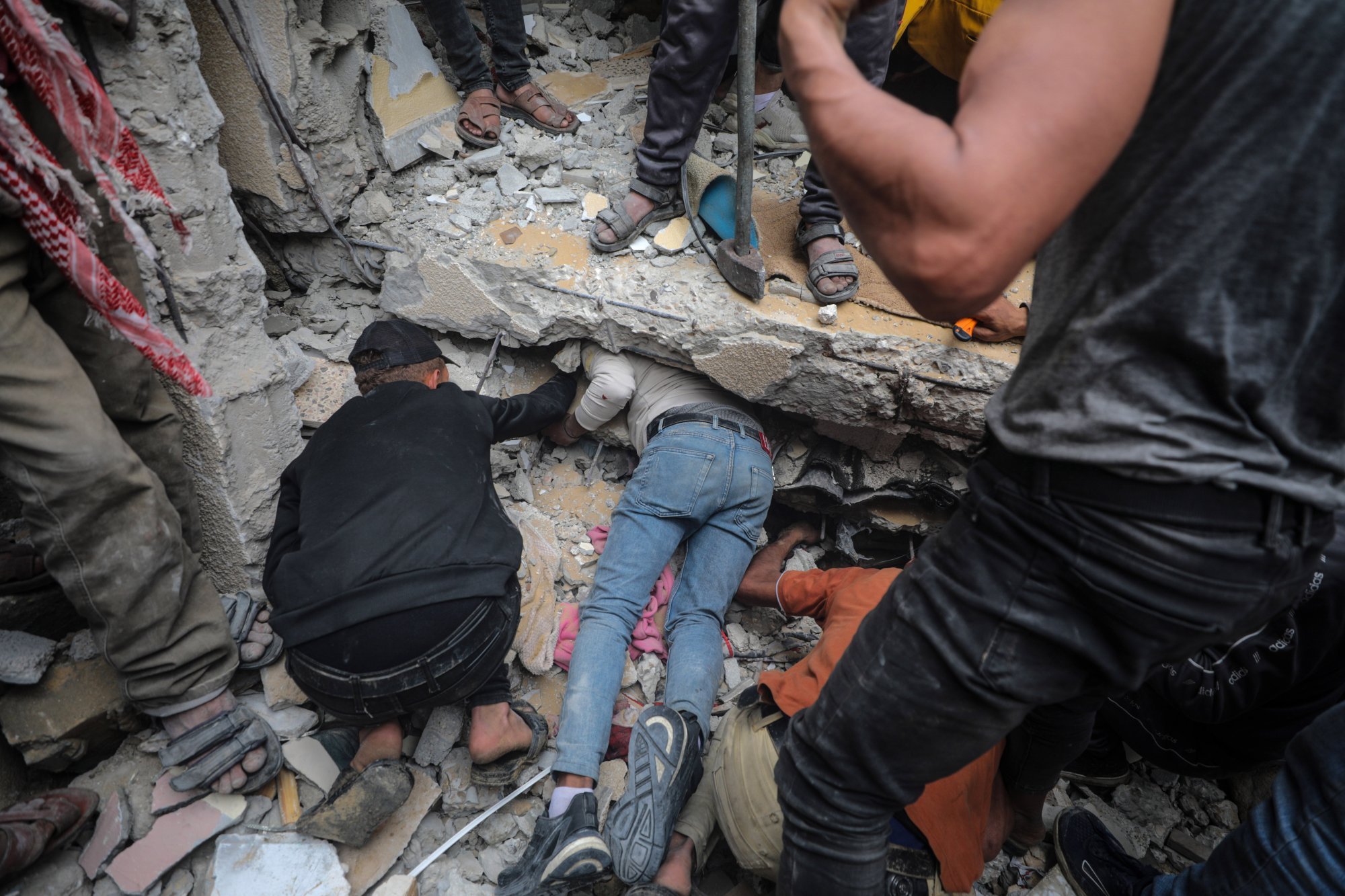
Much of Gaza has been reduced to rubble by Israel. Fighting continues in the southern city of Khan Younis, with sporadic clashes still breaking out in northern areas supposedly cleared.
More than 85 per cent of Gaza’s 2.3 million inhabitants have been left homeless. Most of the displaced have sought shelter in Rafah, which had a pre-war population of about 300,000.
Egypt has sealed off its border to the enclave. Cairo has framed its opposition to the displacement of Palestinians from Gaza as part of wider Arab rejection of any repeat of the “Nakba”, or “catastrophe”, when 700,000 Palestinians fled or were forced from their homes during the 1948 war that accompanied Israel’s creation.
Egypt preparing shelter area at Gaza border for feared Rafah exodus: sources
Egypt preparing shelter area at Gaza border for feared Rafah exodus: sources
Egypt is nonetheless preparing an area at the border that could accommodate Palestinians, as a contingency should an Israeli offensive into Rafah prompt an exodus across the frontier, three security sources in Egypt told Reuters, declining to be named due to the sensitivity of the matter.
The Egyptian government denied making any such preparations.
Israeli Defence Minister Gallant said Israel had no intention of evacuating Palestinian civilians to Egypt.
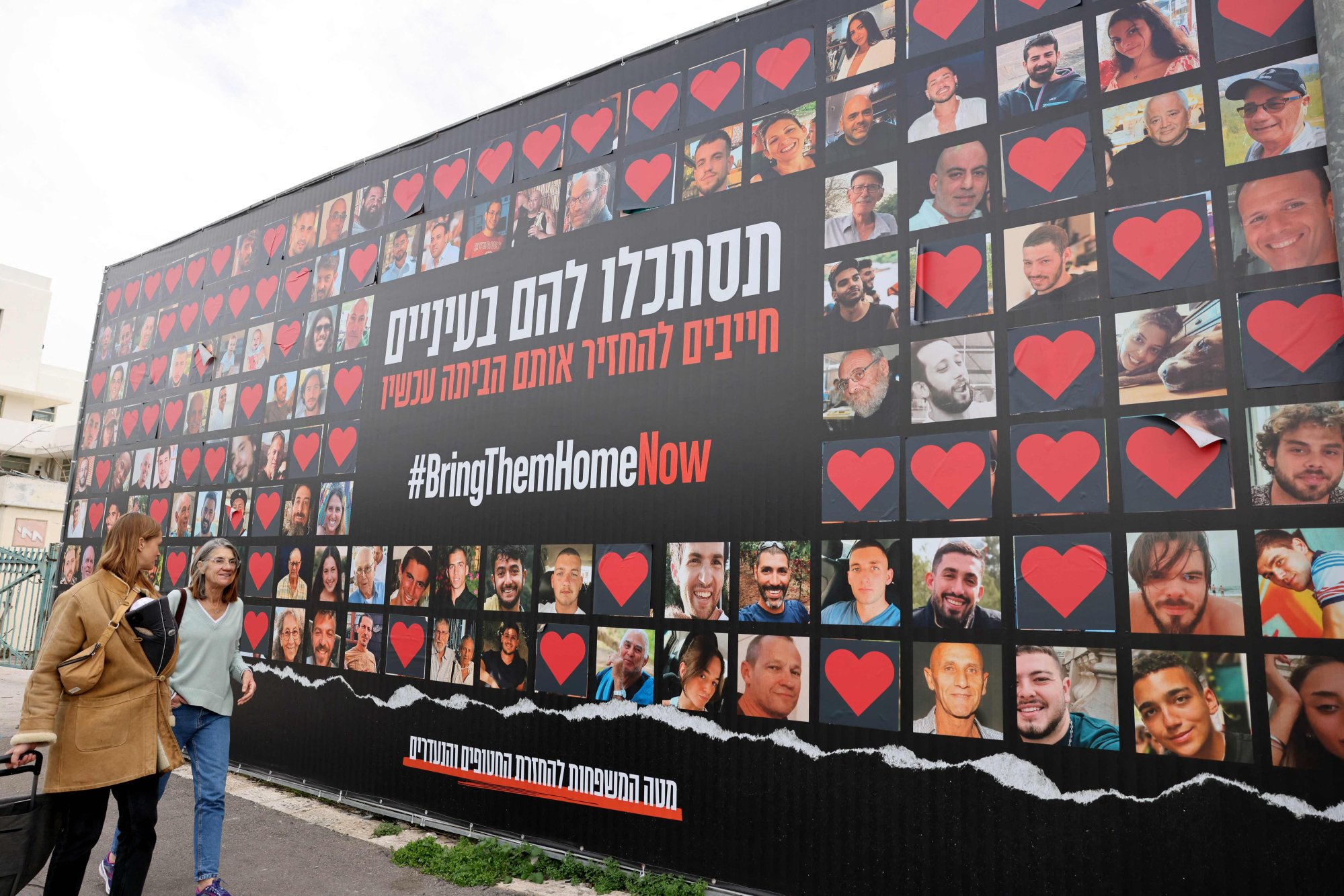
Melamed, the former Israeli intelligence official and negotiator, said the only potential delay to the Israeli assault on Rafah could come should Hamas give ground in hostage negotiations and hand over the prisoners it took on October 7.
“Even that would only delay the advance on Rafah unless it is coupled with the demilitarisation of the city and surrender of the Hamas battalions there,” he added.
A senior regional security official said Israel believed some Hamas commanders and hostages were in Rafah.
This month, after weeks of negotiations, Hamas proposed a ceasefire of 4½ months during which it would free all Israeli hostages, Israel would withdraw its troops from Gaza and an agreement would be reached on an end to the war.
Egypt is threatening to void its peace treaty with Israel. What does that mean?
Egypt is threatening to void its peace treaty with Israel. What does that mean?
Netanyahu rejected the offer as “delusional”. A new round of talks involving America, Egypt, Israel and Qatar on a truce ended without a breakthrough in Cairo on Tuesday.
Senior American officials see securing a deal to release the remaining hostages in exchange for an extended pause in the conflict as the best path to creating space for broader talks, the US sources said.
Yet they’re concerned such a deal may not materialise in coming weeks and war will continue into Ramadan, which could intensify global criticism of Israel’s campaign, they added.
Additional reporting by Agence France-Presse

